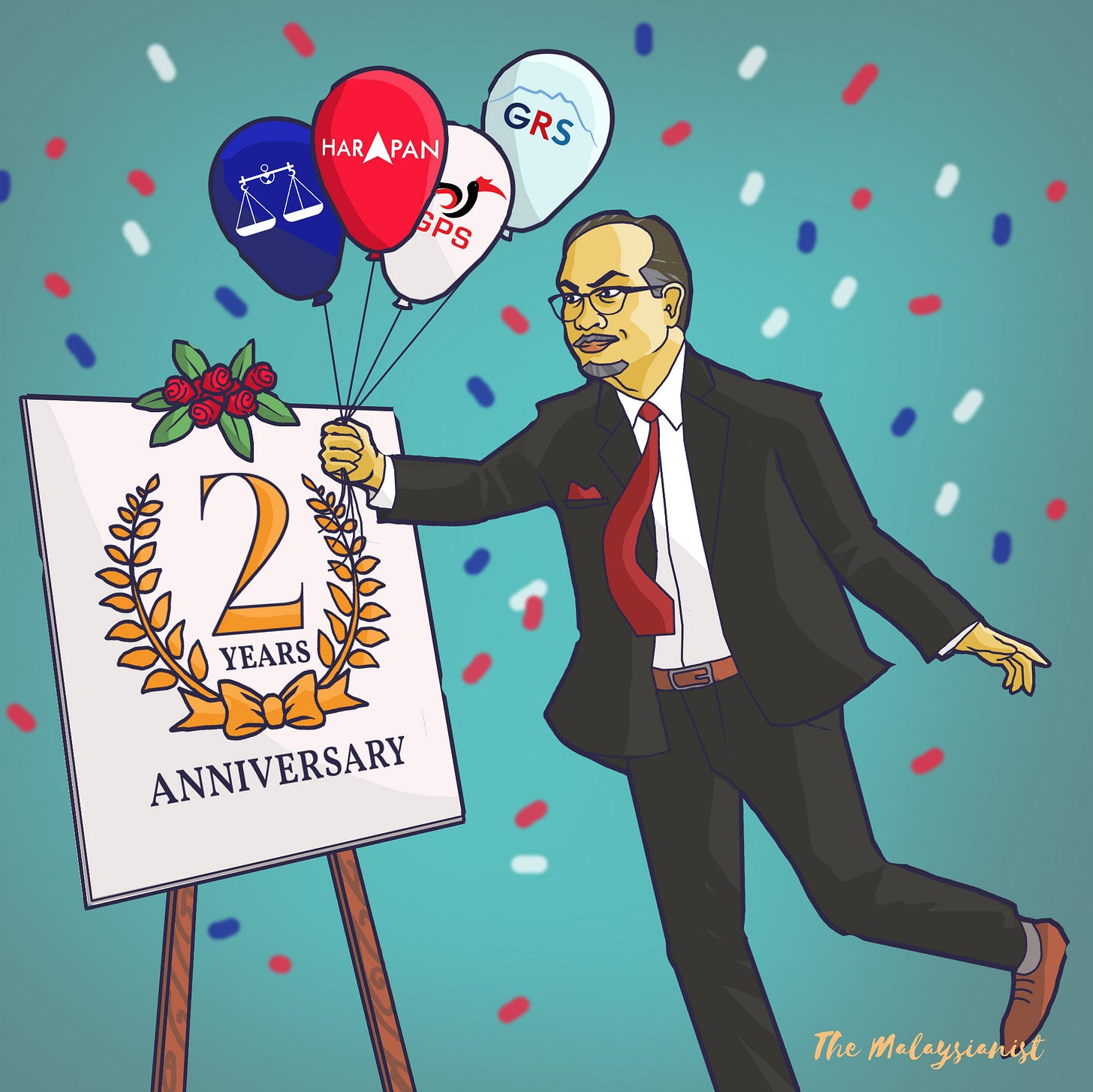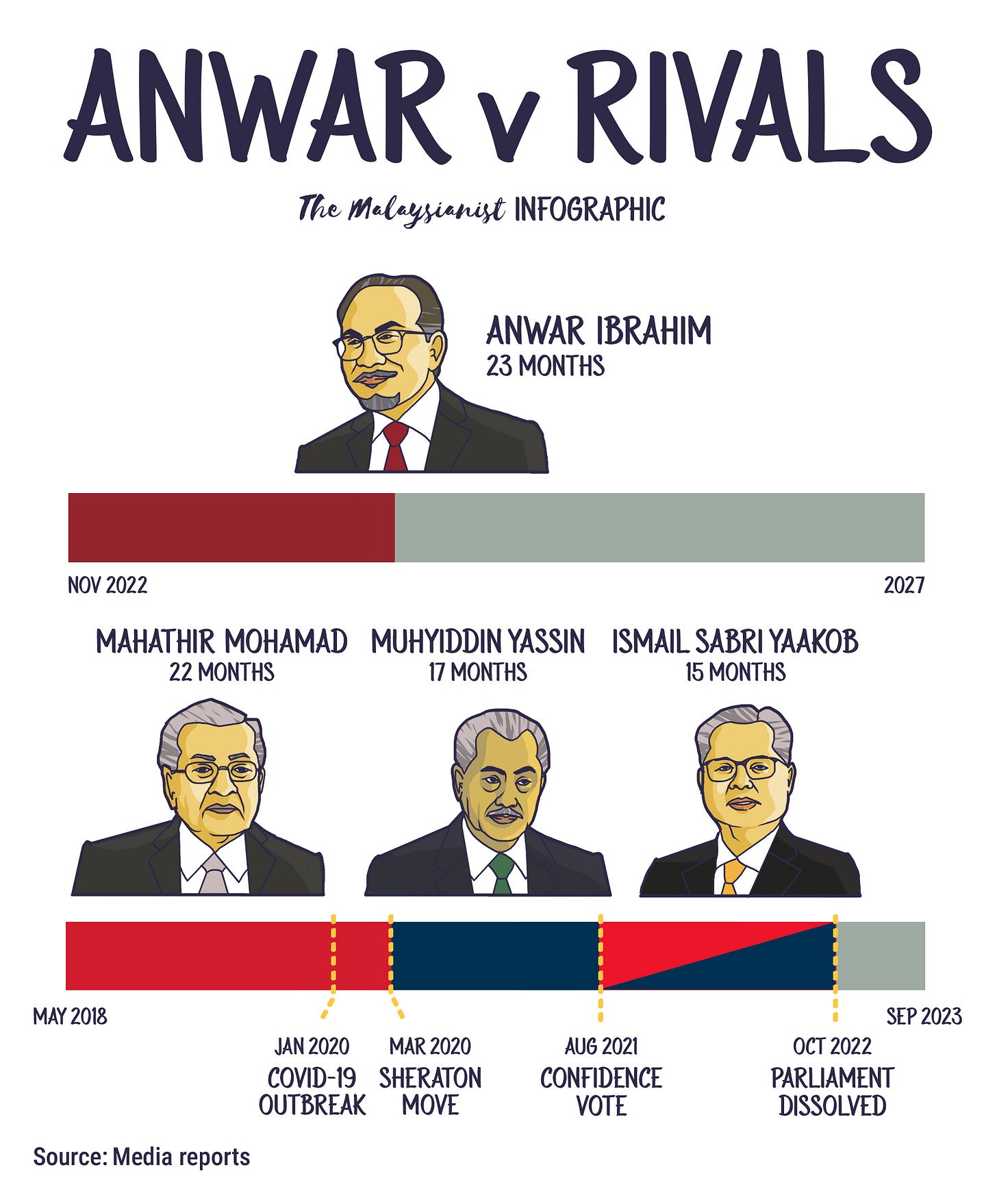Anwar at Month 23
The PM is set to last longer than his rivals post-2018 but certain shifts are hard to ignore.
September was crushing for me and I learnt a hard lesson that you can’t deliver on an empty tank. More of this when I publish this year’s founder’s report and the usual what-I-learned-running-a-newsletter post in December. But we’re in the last quarter of the year and there’s work to be done.
You’re reading a paid version of The Malaysianist, a newsletter on money and power by writer and journalist Emmanuel Samarathisa.
I run monthly and annual subscriptions. There’s also the atas or founding member tier where you get all the perks of an annual subscription and more, such as an annual report and insight into how this little corner of the internet fared throughout the year.
Group subscriptions are also on the table, too, if you’re mulling over bulk purchases for your organisation or family members.
Prime Minister Anwar Ibrahim has been in power for close to 23 months. Like all things numerical, the significance is that he is still in office, surpassing that of his mentor-turned-nemesis Mahathir Mohamad, who was ousted in 2020.
Anwar is expected to last longer than Mahathir’s second stint as prime minister — at least for a good term. But unlike Mahathir’s Pakatan Harapan government, times are radically different under Anwar’s unity umbrella.
When Anwar clocked in on November 25, 2022, voters expected much from the man who once shouted “reformasi” and galvanised a large group of Malaysians to an alternative version of a country that was led by an iron-fisted Mahathir.
(This was during Mahathir’s first stint (1981-2003) where he became Malaysia’s longest serving PM.)
Since Anwar took up the mantle, however, Malaysians have had to temper expectations, and as he crosses the two-year mark, there are some trends and patterns.
Like all things government, there’s just so much to write about. But today’s brief sticks to the typical The Malaysianist coverage on money and power, so I’ll cover some of the shifts we’ll be seeing within Corporate Malaysia, from a change in defence procurement to bailouts for the wealthy.
Let’s get to it.


